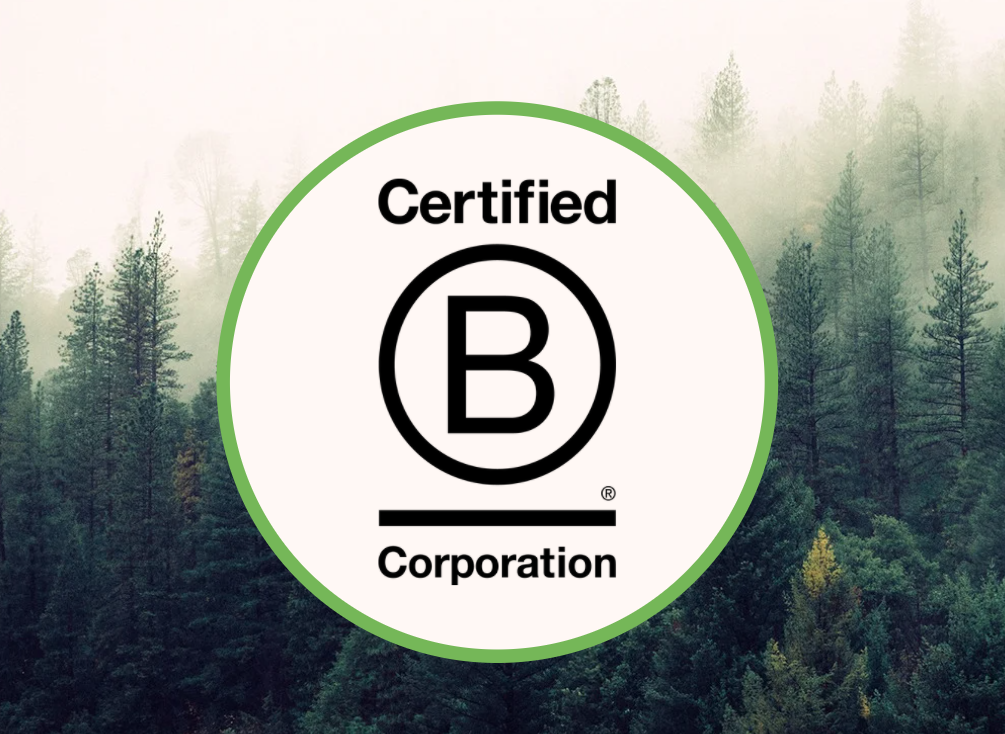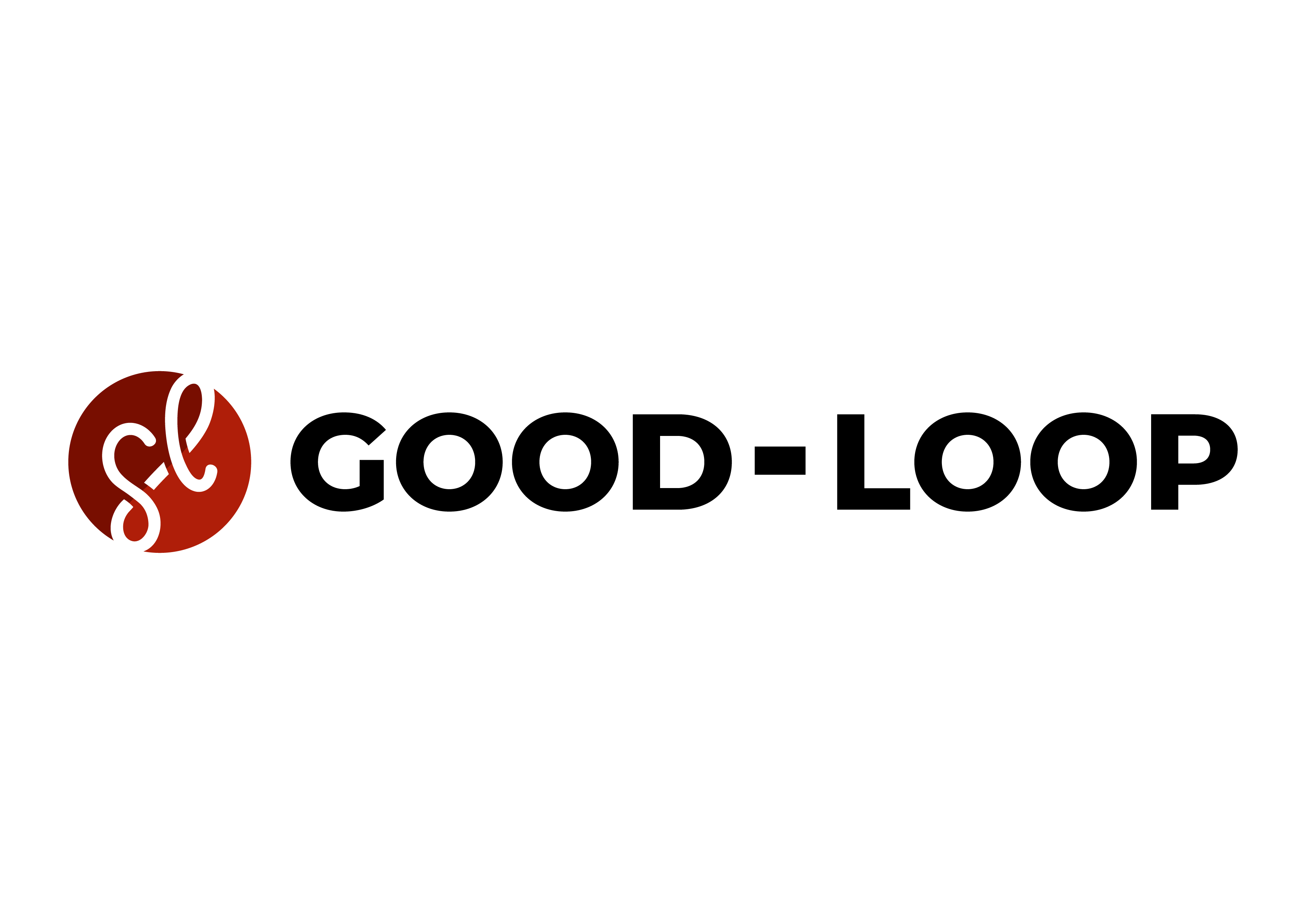Good-Loop in 2019 became among the first ad tech companies to be certified as a B Corp. As a company with purpose at the heart of everything we do, it's something we're incredibly proud of.
So, with March designated as B Corp Month, just what does it mean? And why does it matter?
Well, to help, using some examples from our own application process and the impact it's had since, we've tried to answer some of the most common questions we get asked about becoming a B Corp.
Hopefully, it provides some help to other companies thinking about applying.
So what is a B Corp?
Well, according to the B Corporation certifying board, a B Corps is: "…a designation that a business is meeting high standards of verified performance, accountability and transparency on factors from employee benefits and charitable giving to supply chain practices and input materials."
Achieving certification is no mean feat, with extensive evidence required on everything from the gender pay gap through to carbon emissions to demonstrate that your organisation is delivering results not just for shareholders but all stakeholders your business touches.
For advertising, that means, quite literally, almost everyone. This culminates in the signing of the B Corp certification of interdependence - and adopting these commitments into the formal, legal articles of the company.
Scoring is weighted across various different factors. These are: Governance, Workers, Community, Environment and Customers - with dozens of questions in each.
Points are awarded depending on the standard the company achieves. The threshold for becoming a B Corp is 80 points. The average score across all businesses is 50.9.
After all our evidence was evaluated and assessed by the B Corp analysts back in 2019, Good-Loop scored 84.3 points. However, this number is expected to increase soon as we've recently implemented a load of new policies as we've grown as a company. Businesses have to recertify every 3 years, which means it's our turn again soon!

This seems like an awful lot of work for a shiny badge.
You'd be forgiven for thinking this seems like an awful lot of effort for a pretty sticker. But for us, registration meant much more. As an organisation set up with the goal of changing an industry for the better, it was important we went deeper than simply to 'give money to charity'. We wanted to be an example of how business can be done.
We make mistakes. We'll make many more. But with the legal adoption of these commitments, it means that no matter what happens with us as a company, we've baked in the good.
Our adoption of the B Corp standard was due to two key reasons:
-
It's very common for start-ups to set up with a clear, world-improving and ambitious mission, only to trade those values out the first time a cheque is dangled in front of them. This effectively means that to be involved with Good-Loop - as an investor, a team member or a client - you're subscribing to a better code of practice. The bar is high, but we like to think that better workplaces are worth the effort.
-
The other reason is that, as we began to get closer to some brands, it was inherently assumed that we already were one! An awkward 'shuffle of the feet and pray for a hole to open up' conversation about the fact we weren't with the indefatigable champion of better business and all-round chief badass, Lisa Hogg, was the kick up the backside we needed to get started and realise that our commitment to better business had to run deeper than just shovelling money to charity (though, that doesn't do us any harm!). We're eternally grateful for that help in encouraging us to think wider and deeper, and like to think we've paid it forward since in similarly straight-talking but well-meaning chats with prospective B Corps.
What's it done for you?
A question we get asked a lot by peers and companies interested in pursuing the B Corp journey is a very simple one: will this make me more money?
The answer is the dreaded sort of.
In truth, at Good-Loop, we thought this would open a floodgate of ethically-minded revenue within months of certifying. The reality of that, of course, was deeply misplaced. Business purchasing decisions are - quite rightly - not made at meaningful scale based on whether you're a nice bunch of people, but whether you add value/meet their needs.
However, certification has undoubtedly helped us prosper - particularly in building our team. It's helped us find incredibly-driven, smart people who inherently understand and share our mission and values, delivering major multiples of ROI through their work and greatly reducing staff turnover.
That also means opportunity cost is reduced through time that hasn't been spent on recruiting, and, of course, recruitment fees.
It's also been an extremely useful tie-breaker. If everything else is equal between us and a competitor, it's our belief that modern procurement will favour us instead of a less ethically-minded competitor - undoubtedly true in the new world of the triple bottom line.
Supporting B Corp is an excellent way for large enterprises to meet this need, and support sustainable supply chains.
Should I bother or not?
Ultimately, becoming a B Corp will make you more money by making you a better, more efficient, more resilient business. It inherently sets the standard of your business's operational success - outside of just revenue and profit - much higher than 99% of your competition.
Becoming a B Corp won't necessarily bring you revenue directly, but will make your business a magnet for it through being a well-oiled machine, with happy and motivated stakeholders. It's an indirect benefit that's hard to quantify on a specific line of the balance sheet, but one that will have an impact on our bottom line eventually.
In the end, the golden rule is as true as it ever was - treat others as you would like them to treat you. There's no reason for business to be any different.

